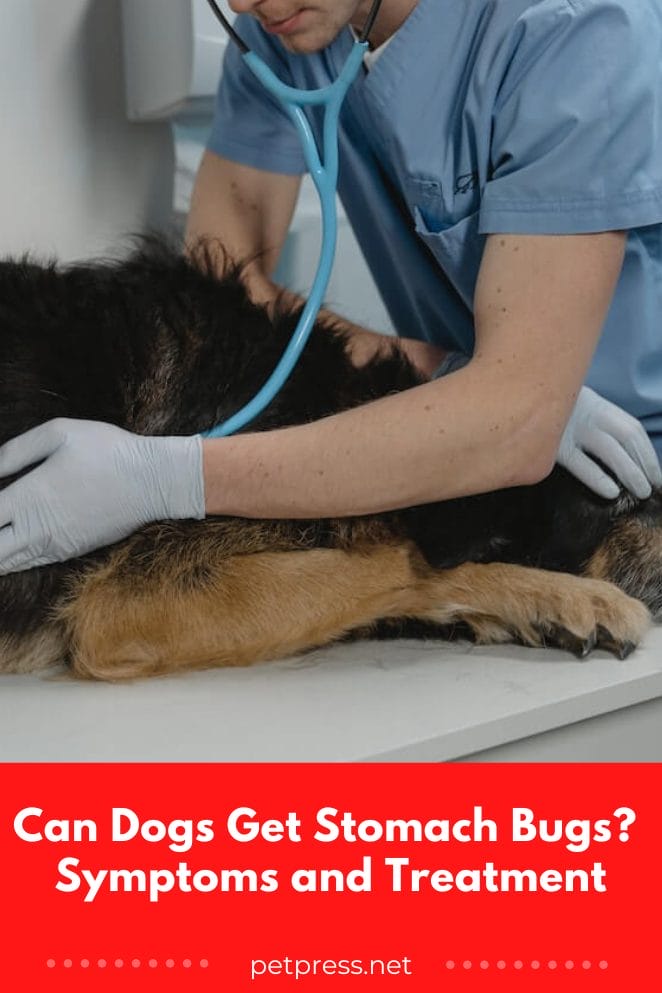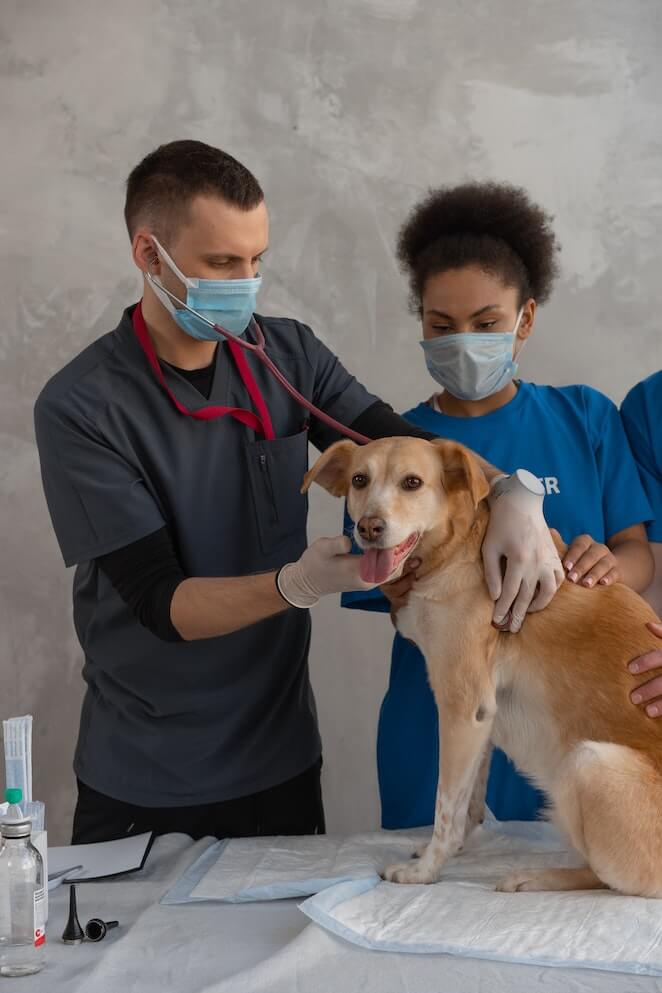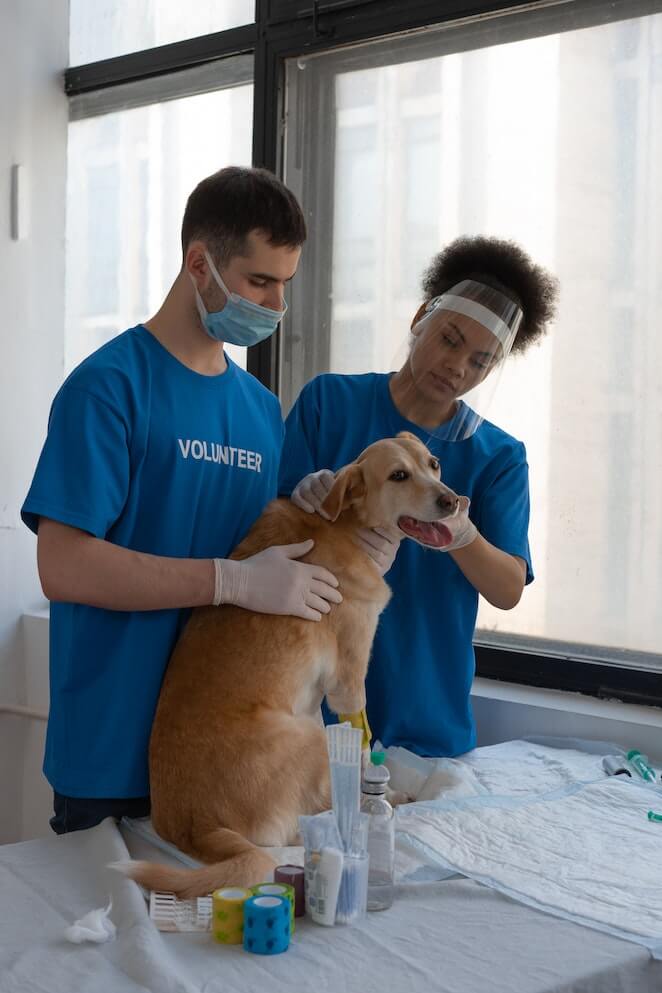
There’s nothing quite like the feeling of being awakened in the middle of the night by your dog vomiting on your bed.
Or maybe you’ve come home to find that your pup has left a “present” for you on the carpet. Either way, it’s not a pleasant experience.
Stomach bugs are unfortunately common in dogs.
They can be caused by anything from eating something they shouldn’t have, not chewing food properly, to stress or anxiety.
The good news is that most stomach bugs are relatively harmless and will pass within a day or two.
However, some can be more serious and may require veterinary treatment.
Here’s everything you need to know about stomach bugs in dogs, including the symptoms, causes, and treatments.
What are stomach bugs in dogs?

Stomach bugs, also known as gastrointestinal viruses or gastroenteritis, are a general term for any type of viral infection that affects the stomach and intestines.
These viruses can cause nausea, vomiting, diarrhea, and abdominal pain.
While stomach bugs are usually mild and will pass within a few days, some can be more serious and lead to dehydration, weight loss, and even death.
It’s important to watch for signs of a more serious stomach bug and seek veterinary treatment if your dog is showing any of these symptoms.
Can dogs get stomach bugs?
Yes, dogs can get stomach bugs. Just like humans, dogs can contract viruses that cause gastrointestinal upset.
These viruses are typically spread through contaminated food or water, or contact with an infected animal.
What are the symptoms of a stomach virus in a dog?

1. Diarrhea: This is perhaps the most common symptom of a stomach virus in dogs. Your dog may have loose, watery stools or diarrhea that is bloody or tinged with mucus.
2. Vomiting: Another common symptom of a stomach virus is vomiting. Your dog may vomit once or multiple times, and the vomit may be transparent or contain blood or mucus.
3. Loss of Appetite: Most dogs with a stomach virus will have little to no interest in food. If your dog does eat, he may only pick at his food or vomit soon after eating.
4. Fever: A fever is often one of the first signs that something is wrong with your dog. If your dog has a stomach virus, he may have a fever of 102 degrees or higher.
5. Lethargy: Dogs with a stomach virus will often be exhausted and lethargic. They may not want to play or go for walks and sleep more than usual.
How long does a stomach virus last in dogs?

A stomach virus in dogs usually lasts around 3 days.
However, some viruses can last up to 10 days. The virus causes vomiting and diarrhea. This in turn can lead to dehydration.
It is important to keep your dog hydrated during this time by offering small amounts of water frequently.
You should also contact your veterinarian if your dog is showing signs of severe dehydration or if the vomiting and diarrhea persist for more than a few days.
Treatment for a stomach virus will focus on rehydrating your dog and preventing complications from dehydration.
In severe cases, hospitalization may be necessary.
With proper treatment, most dogs recover from a stomach virus within a week.
What can I give my dog for a stomach virus?

While there is no specific cure for a stomach virus in dogs, there are some things that can be done to help ease your dog’s symptoms and make them more comfortable.
1. Rest: Just like people, when dogs are sick they need plenty of rest to help them recover. Create a cozy space for your pup to relax and make sure they have easy access to water and food.
2. Clear liquids: Dogs with stomach viruses may not have much of an appetite, but it’s important that they stay hydrated. Offer small amounts of clear liquids like chicken broth throughout the day.
3. Bland diet: Once your dog is keeping down fluids, you can start to introduce a bland diet. Boiled chicken and rice is a good option, or you can purchase a commercially available bland diet from your vet.
4. Medication: In some cases, your vet may prescribe medication to help with nausea or diarrhea.
5. Prevention: The best way to deal with a stomach virus is to prevent it in the first place. Make sure your dog is up to date on their vaccinations and keep them away from other sick dogs.
Conclusion
A stomach virus is a common illness in dogs that can cause diarrhea, vomiting, and loss of appetite.
Most viruses will last for 3-5 days and will resolve with rest and hydration.
In severe cases, hospitalization may be necessary. Even the healthiest dog breeds might fall prey to stomach bugs.
You can help prevent stomach viruses by keeping your dog up to date on their vaccinations and avoiding contact with other sick dogs.
- 7 Dog Breeds With Webbed Feet And Why Do They Have Them - July 19, 2023
- 10 Best Fish For Small Tanks That Make Perfect Pets - July 18, 2023
- How to Breed Guinea Pigs: A Detailed Guide - July 17, 2023


GIPHY App Key not set. Please check settings